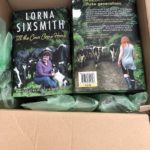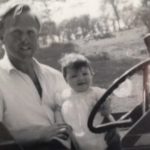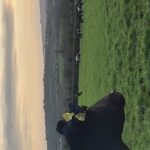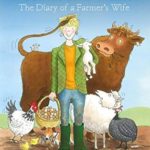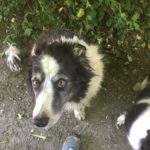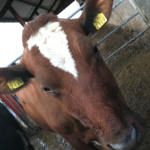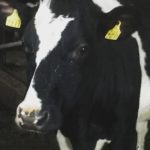
Are Cows Just Numbers?
Every Irish bovine has a number that is individual to them. It’s called a tag number and they have to wear a bright yellow tag in each ear. Each bovine is also issued with a passport which contains details such as their sire (father), dam (mother), date of birth, breed and sex. The passport must accompany them if they are being sold or sent to the factory. Before such documentation became compulsory, many farmers gave their cows names such as Blossom, Primrose, Buttercup and other flower or female names. Now that each cow is known by her number, are they still given personal names?
‘Do you name your cows?’ is a question I am sometimes asked. As our herd is now pedigree, all the cows have their individual pedigree names but if I’m honest, we don’t remember all of them. Brian does know all of their tag numbers though. We don’t bother with freeze branding (some farmers get individualised digits freezebranded onto the cow’s behinds for ease when milk recording. Only our oldest cows are freezebranded as we only did it for one year). God love me if I ever have to do the milk recording without him as I only know about 20% of the numbers. In many ways, their numbers are their names, they are their own personal identification.
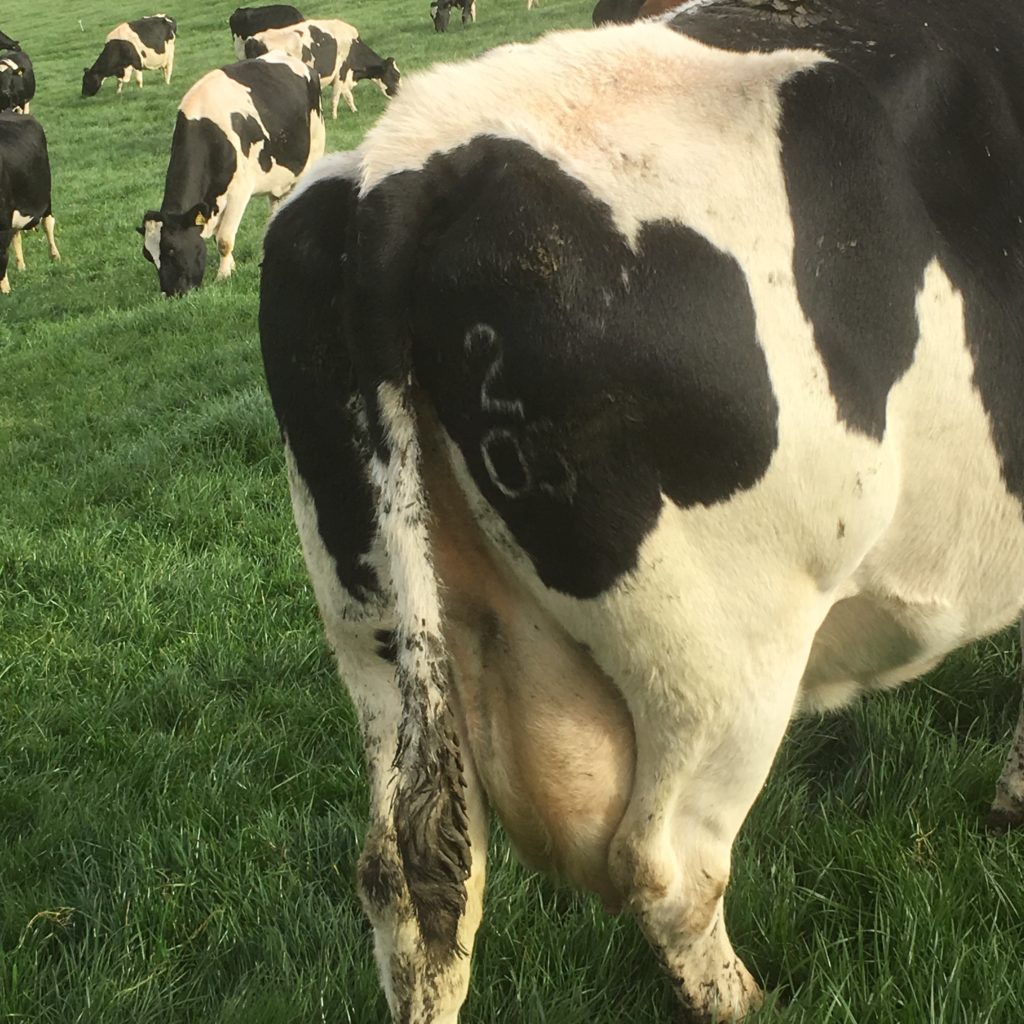
Lucy has the freeze brand numbers 205
We do name some as calves, mostly our favourites or ones that stand out for some reason – be it their colouring or personality. The first few calves of the season are always named, and the last.
A Rose By Any Other Name and all that
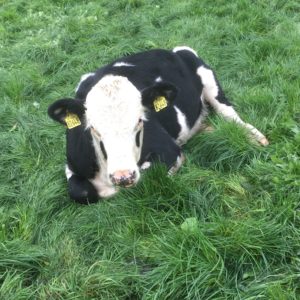 Calves are often given a name based on their colouring or their markings. No prizes for guessing why Pierrot got his name. Some people don’t name their male calves as they go to the factory by 16 or 22 months but if they have a personality that stands out, they get a name. It might be ‘you greedy sod’ or it might be ‘Clive’ or ‘Barry’.
Calves are often given a name based on their colouring or their markings. No prizes for guessing why Pierrot got his name. Some people don’t name their male calves as they go to the factory by 16 or 22 months but if they have a personality that stands out, they get a name. It might be ‘you greedy sod’ or it might be ‘Clive’ or ‘Barry’.
Red Clover is a favourite of mine, partly because of her red colouring. As a calf, she was very ill with cryptosporidium and was close to death. I spent a night up with her and two other calves, getting 600ml of liquid into each of them using a 60ml syringe every 90 minutes. Not only did she survive but she has a lovely nature. Her pedigree name is Clover so her colouring means she’s called ‘Red Clover’. Kate wasn’t impressed – said it makes her sound like she is a cheese!
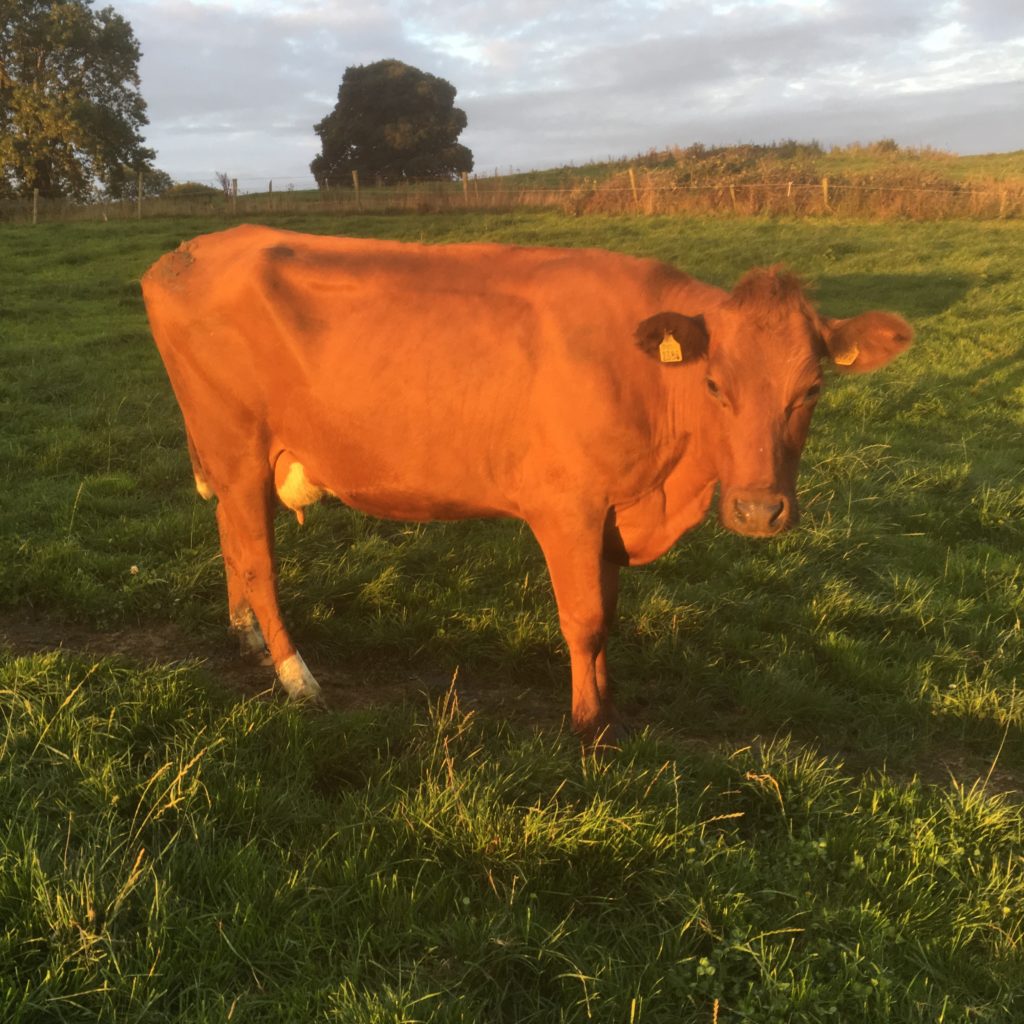
Some names aren’t that complimentary and I’m not just thinking about when ‘little lady’ becomes ‘ya fecking hoor’ because she has kicked out or splattered one of us with muck. We have one cow that doesn’t have the best conformation. She’s tall, lanky and doesn’t have the best feet. As she’s mostly white too, she’s been christened ‘the camel’, bless her!
Why Becky is Special
Becky is a cow I have a soft spot for, although I’m not sure she appreciates it. In fact, I know she doesn’t. She stood out for me when she was a newborn calf. She was small when born and a difficult feeder. At the time, we were short on calf housing and she was in a pen of six whereas now I put small or delicate calves into a pen on their own or with just one other one. While her comrades were guzzling milk from the feeder, I was still having to feed her by bottle for the first few days.
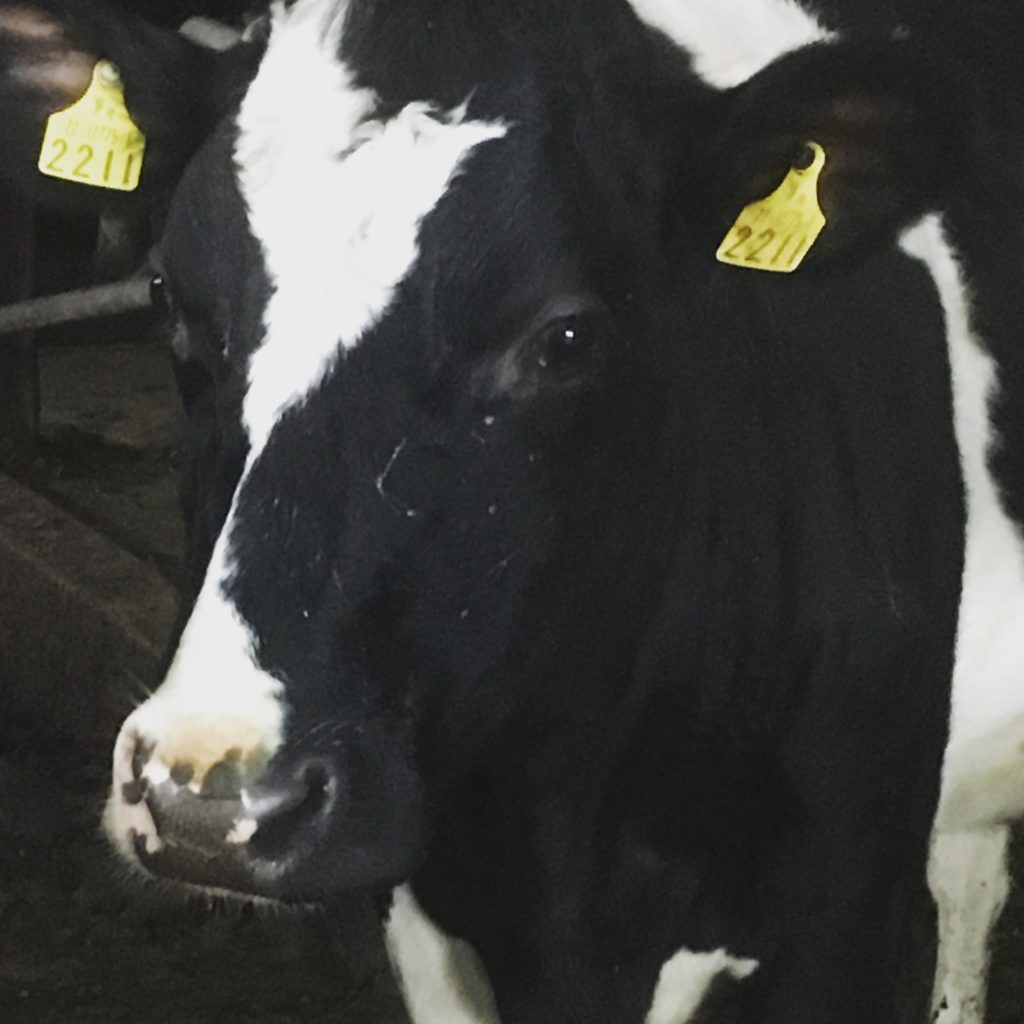
She was stubborn and feisty, having to be persuaded to take the milk for the first couple of days. Once she got past day 4, she seemed to recognise that milk tasted good and she took to the feeder. Within a week, she was well able to compete amongst her bigger comrades. As a calf, if she could be awkward she would be, whether it was going to the wrong side of a gap when being moved or ensuring she stood on my toes at any opportunity. She was the kind of calf that did her best to ‘be in your face’. When it came to her being 15 months old, it was time for us to sell some heifers. Her EBI score was fairly good but far from the best so we were considering putting her into the group for sale. She was a bit small though. “She’ll make the others look bigger,’ was my opinion. The buyer didn’t select her because of her size so we kept her.
She went in calf no problem. We were a bit concerned as her first due date approached as she was huge and we were worried the calf was going to be too big for her still smaller-than-her-comrades frame. As it turned out, it was twins and all was well. Sometimes it can be hard for cows to go back in calf after having twins but she was fine.
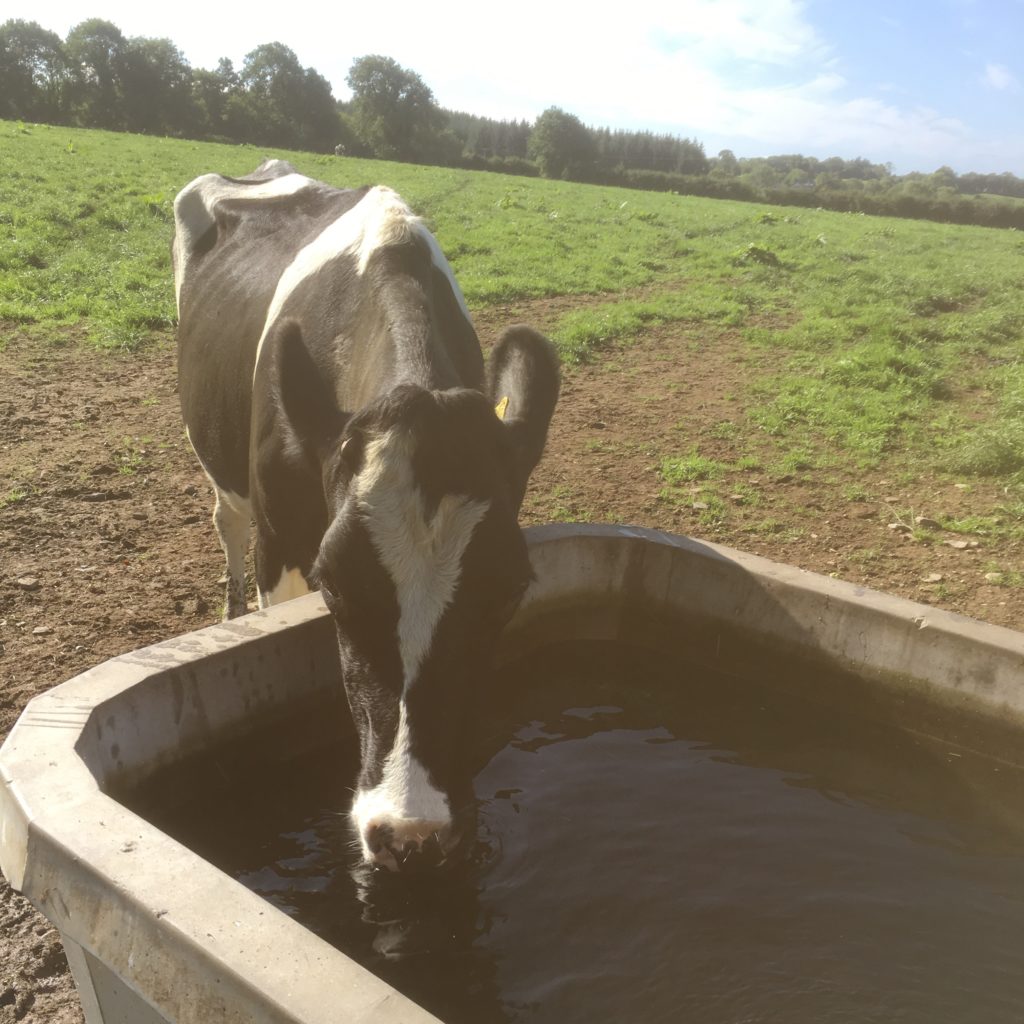
She was a pain (and still is) in the milking parlour though. Cows aren’t toilet trained but most will desist when in the parlour – except Becky! Once she has eaten her dairy nuts and gets bored, she will poo. She doesn’t like being the first cow in the row but is so greedy, she sometimes goes to the front without thinking. Once she’s eaten her dairy nuts and realises she’s at the front but can’t do anything about it so she poos. Then she decides to try and reach any meal that has spilt on the ground so gets down on her front knees to scavenge around!
Becky got mastitis last year so she was ‘blind’ in one quarter meaning there was no milk being produced in that part of her udder. It’s not the end of the world but it is a nail in her coffin as it were. However, after calving this year, it came back into milk. She got a reprieve. Even though she’s stroppy at times, I still have a soft spot for her. Brian says we are kindred spirits in personality!!!
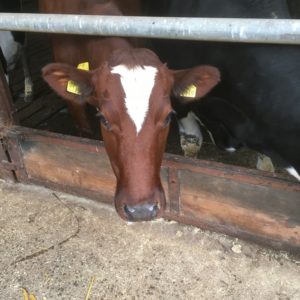
Is it harder to sell or cull cows once we have named them? Yes, there’s no doubt about it. Rua is being culled this year as she isn’t in calf (had cysts). Brian describes her as a ‘stroppy mare’. She’s greedy, she will go through any person or any cow to be the first cow in the row. She won’t let down her milk unless we get the cluster on her quickly and she’s far from being the best in the herd. However, I’ve always had a soft spot for her because of her colouring, because I named her and because I admire her strong personality. I will be sad when she goes but such is farming life at times. And to be honest, I think Brian will be a bit sorry to see her go too.
Till the Cows Come Home
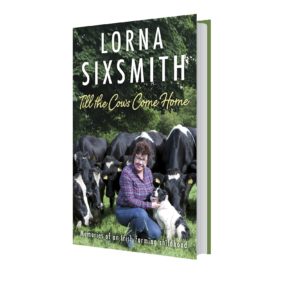 If you would like to read more about the cows in our herd, from Delilah our best cow, to Daisy a favourite who passed away suddenly, and the first cow I fell in love with at the age of eight, do pick up a copy of my farming memoir Till the Cows Come Home from your nearest bookshop or from Amazon.
If you would like to read more about the cows in our herd, from Delilah our best cow, to Daisy a favourite who passed away suddenly, and the first cow I fell in love with at the age of eight, do pick up a copy of my farming memoir Till the Cows Come Home from your nearest bookshop or from Amazon.
Will Evans, Welsh farmer and podcaster extraordinaire, reviewed it on his blog and said “Perhaps my favourite thing though is how Lorna’s written about the eponymous stars of the show – the cows themselves. It’s hard to explain to someone who’s never owned livestock just what they mean to us, and how much a part of our families they are.”
“To sum up, the book oozes warmth, humour, wisdom, and love, and is written in a way that makes it both fascinating and entertaining for farmers and non-farmers alike. I’ve read many books written about farming lives over the years, but this might just be my favourite. If I could write, this would be the book I’d have written myself. So If you want to escape the hectic modern world for a few hours, put down your devices, make yourself a cup of tea, and pick up a copy of Till the Cows Come Home by Lorna Sixsmith. I promise that you won’t regret it.”






